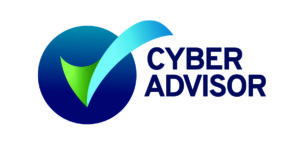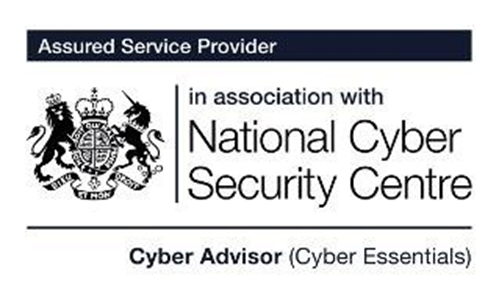
Cyber threats are only increasing, but so many individuals and businesses lack the knowledge and resources to protect themselves. Unfortunately, this can lead to devastating consequences, from identity theft for individuals to revenue loss and legal troubles for businesses. For this reason, it’s so crucial to have a robust cyber security system in place to protect your sensitive information and stop cybercriminals in their tracks.
But what is cyber security exactly? This guide will discuss cyber security and the different types of cyber security that can benefit your business. Then, we’ll talk about why cyber security is so crucial, along with some of the most common types of threats it can protect against. Lastly, you can learn more about how working with a managed IT services provider may provide more comprehensive protection, some available services, and a few essential cyber protection tips.
What Is Cyber Security?
Cyber security is the practice of implementing protective measures to guard computer systems, networks, programs, and data against cyber attacks. Good cyber security systems offer multiple layers of protection and a framework for handling attempted and successful attacks. The framework should also help detect vulnerabilities in the network, identify potential threats, protect IT systems, and recover in the case of a successful cyber attack.
Cyber threats can take many forms, but their main objective is to steal sensitive data, like credit card information, National Insurance Numbers, passwords, etc. These attacks can affect any device, business or personal, connected to the internet. But, with proper cyber security measures in place, users can keep their information out of the hands of cybercriminals.
The Types of Cyber Security
Cyber security is categorised into five different segments depending on what they protect. While there are many kinds of security measures your company can implement, these are a few of the most critical that you’ll need to consider.
Network Security
Network security protects internal networks from hackers by safeguarding the infrastructure. The process involves designing a set of configurations and rules that protect the integrity, accessibility, and confidentiality of networks and network data. Antivirus software, firewalls, and encryption are all types of network security.
Application Security
For application security, tech professionals use software and hardware to prevent threats that can appear during the development stage of an application. Some basic examples of application security measures are two-factor authentication and strong passwords.
Cloud Security
While the Cloud may be more secure than other data storage methods, it’s still not impenetrable. Cloud security deals with protecting data, applications, and IT infrastructure based in the Cloud. These security services constantly monitor and defend data in the Cloud against cyber threats.
Information Security
Also known as InfoSec, information security works to prevent attacks that target sensitive information. These measures can help avoid unauthorised access, modification, recording, and misuse of important, private data.
Mobile Security
Chances are, your employees rely on smartphones, tablets, laptops, and other portable devices to do their work. Mobile security (also called wireless security) protects against the risks involved with wireless computing for portable devices and the networks they’re connected to.
Operational Security
Operational security may refer to the process of training system users about the best cyber security practices and the safety measures in place within your organisation. Proper education can help to enhance your existing cyber security measures and keep your data even better protected.
Why is Cyber Security Essential?
Now more than ever, cyber security is essential for individuals and organisations alike. We live in an increasingly connected world, and so many of the ways we communicate, work, and live are based on the internet. Our reliance on the web has become the perfect means for criminals to steal sensitive information to sell or use for other nefarious purposes. Cyber security measures provide a way to protect our critical data and avoid the fallout of a breach.
For businesses, cyber security breaches can be especially damaging. If your company is the victim of a successful cyber security attack, you may pay for it dearly. The attack could result in temporary closures, loss of revenue, internal stress, and a damaged reputation in the eyes of your clients and partners. There is also a legal requirement for UK businesses that process personal data. Suppose your organisation doesn’t comply with privacy laws like the Data Protection Act and the General Data Protection Regulation. In that case, you could be hit with a hefty fine in the event of a breach.
Common Cyber Threats
Cyber attacks come in many forms. These are a few of the most prevalent cyber threats that businesses face.
Phishing
Phishing is the most common type of cyber attack. Cybercriminals send emails to users asking them to provide sensitive information, like usernames, passwords, and credit card numbers, either by replying to the email or clicking on a link. These emails are often disguised as if a trustworthy source sent them. Proper training is the best way to prevent phishing attacks. When employees are familiar with the signs of a fraudulent email, they can remain vigilant and avoid attacks.
Malware
Malware is a type of software designed to gain unauthorised access to network systems. Users activate the software by clicking on malicious links or downloading harmful attachments. Once it’s activated, the malware can access and transmit data from the hard drive, make systems inoperable, block users from accessing vital network components, etc. Viruses, worms, spyware, and ransomware are all types of malware.
Ransomware
Ransomware is a little different from the other types of malware. It’s designed to obtain access to a computer system to extort money from the user. Attackers use the software to block the users from accessing specific files or systems until they pay a ransom. It should be noted that paying the ransom doesn’t guarantee the system or files will be restored.
Social Engineering
Social engineering is a tactic that involves malicious human interaction. An attacker may lie to or manipulate someone to persuade them to share sensitive data. They may use info from social media posts and profiles to do so. Social engineering is often used in conjunction with other types of cyber threats to increase the likelihood of the victim clicking on a bad link or unknowingly downloading malware.
SQL Injection
An SQL injection involves adding malicious code into a server that uses SQL. This type of code can be surprisingly simple to add; the attacker may only need to enter it in an unprotected website search box. The infection then causes the server to release sensitive data.
Denial of Service (DoS)
The objective of a denial of service attack is to shut down a network or machine. Large businesses and computer systems are the most common victims of this attack. Hackers flood their target with excess traffic, causing it to slow down or crash. The overwhelmed system cannot respond to any requests and is rendered inaccessible for its users. Once the network becomes unusable, the attacker may employ other techniques to obtain data.
Man in the Middle (MITM)
With an MITM attack, a hacker places a program between the victim and whatever they’re trying to access to steal data. Unsecured public Wi-Fi networks are particularly prone to this type of attack. You can avoid this type of attack by not connecting your devices to unsecured Wi-Fi networks and only visiting secure websites with addresses that begin with “HTTPS.”
Cyber Security Help! How You Can Protect Your Business
Cyber security measures must constantly evolve as cyber threats become more sophisticated. Implementing effective measures, ensuring employees follow the best practices, and mitigating your risk can be incredibly challenging. Because of this, it’s helpful to work with a professional IT company. These qualified professionals work hard to stay up to date with all the newest threats and security techniques so they can keep your business safe. A managed service provider can create the framework for a robust cyber security plan, provide 24/7 monitoring, and give your staff all the tools they need to stay safe online.
Read on to discover some of the cyber security services from Optimising IT to help your business. You’ll also learn some essential tips and best practices that can enhance your cyber security plan and ensure all of your staff is staying safe online.
Cyber Security Services from Optimising IT
At Optimising IT, we offer a selection of cyber security services designed to suit ta variety of business needs. Our accredited cyber services will help protect your data and ensure you remain compliant with your legal obligations. Here is a quick overview of all the cyber security services we offer.
-
Fully-Managed Cyber Security:
We will handle every aspect of your digital security with our fully-managed cyber security service. Our team will manage and maintain your entire security system to protect your company and give you some much-needed peace of mind.
-
Cyber Essentials Certification:
Meet the gold standard of cyber security compliance with our Cyber Essentials service. We will ensure your business meets both the Cyber Essentials criteria and ISO27001 guidelines.
-
Cyber Security Audit:
Learn more about the current state of your cyber security system with an audit. Our experts will review and analyse your security processes to help you understand your cyber security standing and how you can improve.
-
Penetration Testing:
How are your current cyber security systems? Use our cyber penetration testing service to find out. Our skilled team will use the techniques of a hacker to try to compromise your network. We’ll expose any existing vulnerabilities and suggest how to protect your system better.
-
Cyber Security Awareness Training:
Cyber security measures can only take you so far; your staff must know how to identify and avoid cyber threats too. Our highly skilled cyber security experts will train your team on the common types of cyber threats and how to handle them properly.
-
Cyber Security Workshops:
We also provide hands-on training workshops for your employees. These sessions include the basics of cyber security, real-world examples, and a question and answer section.
-
Cyber Security Consultancy:
With our cyber security consultancy, we will custom tailor cyber security advice, support, and expertise for your business. Our consultancy services are all-encompassing; we’ll guide you on everything from designing system architecture to recovering from cyber attacks.
Visit our website or contact us to learn more about our cyber security offerings.
Improve Cyber Security with These Best Practices
Working with a solid cyber security team is only part of the plan. An effective cyber security strategy depends on people within your organisation making smart choices. In addition to receiving training from a qualified cyber security professional, these tips can help everyone remain vigilant online.
- Only enter personal information on trusted websites. Trust your gut– if a site seems sketchy, it probably is.
- Always double-check the URL before going to a website. If a site begins with HTTPS://, it’s a secure site. If a web address begins with HTTP://, avoid entering any sensitive data on it.
- Don’t open email attachments or click on links in emails from sources you don’t know. Always check to verify who sent the email first, and look for discrepancies like misspelled words and incorrect logos.
- Use strong passwords made up of a combination of upper case and lower case letters, numbers, and special characters. Enable two-factor authentication whenever possible.
- Update operating systems, applications, and other software as soon as new updates are available. Otherwise, you could be leaving your systems vulnerable to attacks.
- Backup files and systems regularly. In the event of a cyberattack, it’s crucial to have backups available, so you don’t lose any data.
Are you ready to learn more about how managed cyber security services can protect your company? Contact us at Optimising IT to learn how we can help.












